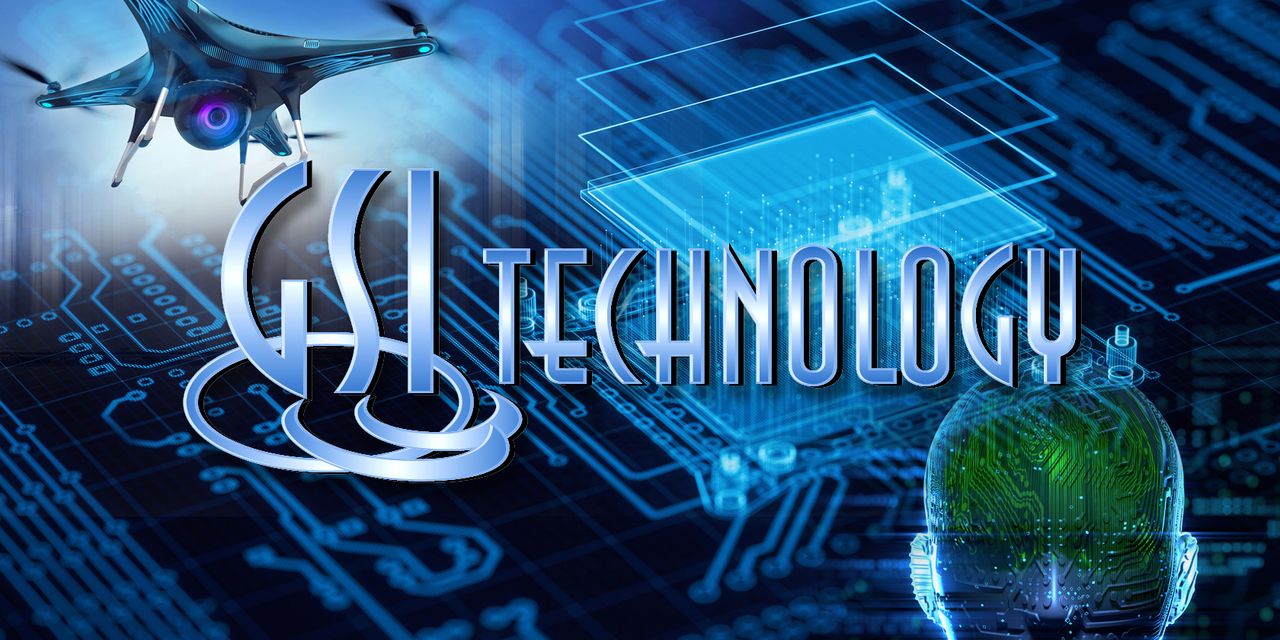GSI Technology Inc. is eyeing opportunities for its new Gemini-II processor in artificial-intelligence applications and the aerospace market, touting its technology as a good fit for drones, satellites and aircraft.
The Sunnyvale, Calif.-based company sparked meme-like buzz earlier this year, attracting attention from users posting on Reddit.
Founded in 1995, GSI Technology
GSIT,
designs and develops memory products for the telecommunications and networking industries. The company describes itself as a leading provider of static random-access memory, or SRAM, semiconductor products. But it’s GSI Technology’s efforts around AI-processor technology that have been attracting attention.
GSI recently announced a milestone for its Gemini-II processor, which is aimed at the AI market. Last week, the memory specialist announced “tape-out,” or design completion, of the Gemini-II associative processing unit. In a statement, GSI Technology said that Gemini-II will bring significant performance enhancements over its predecessor, Gemini-I, with more than 10 times the processing performance and eight times the memory density.
Related: GSI Technology, which has sparked meme-like buzz, touts AI chip milestone
The company told MarketWatch that its 16-nanometer Gemini-II chip will be generally available in 2024. Whereas the 28-nanometer Gemini I processor is well suited to synthetic-aperture radar, or SAR, image collection and molecular research, Gemini-II will extend the technology’s reach to “true data-center applications,” said Didier Lasserre, GSI Technology’s vice president of investor relations.
GSI Technology is already in talks with what it describes as a leading cloud-service provider around Gemini-II. “Large language models, such as ChatGPT, Microsoft’s Bing, and Google’s Bard, are pushing natural language processing boundaries,” GSI Technology CEO Lee-Lean Shu said in a statement last week. “We’ve just begun to tap into their transformative potential across many industries and applications. Abundant opportunities await Gemini-II and future APU implementations in the AI market.”
Lasserre said that Gemini-II, for example, could also be used in applications related to advanced driver assistance systems, or ADAS, in the automotive industry. “It will open up new markets for us,” he added.
While companies like Nvidia Corp.
NVDA,
Palantir Technologies Inc.
PLTR,
and Microsoft Corp.
MSFT,
have cemented themselves as AI players in the eyes of Wall Street, investors have also been watching lesser-known AI-related companies this year.
Related: Small-cap GSI Technology generates meme-like buzz
Set against this backdrop, GSI Technology’s stock has risen 33.5% this year, outpacing the S&P 500’s
SPX
gain of 10.1%.
GSI Technology’s director of AI processors, Mark Wright, told MarketWatch that the low power consumption and high performance of the Gemini-II make it a good fit for the aerospace industry. Taking up a small physical footprint, he said, the processors could be deployed directly on an aircraft, drone or satellite, where they could apply AI to image data, reducing the need to send data back to Earth for processing. “You’re looking for a ship at sea, or you’re looking for smoke on government land … we can do the AI,” he said. “Is there a possibility that there’s smoke? Or is this changed from the last time we took a satellite photo?”
Wright used the example of Malaysia Airlines’ MH370, which went missing in 2014 with 239 people on board, sparking a massive search that involved huge amounts of image data. By processing image data in a satellite, Gemini-II will be able to evaluate vast tracts of ocean more effectively, ensuring that only the most relevant data is sent back to Earth, he told MarketWatch.
With a market cap of $56.7 million, GSI Technology is relatively small, particularly when compared with meme-stock darlings AMC Entertainment Holdings Inc.
AMC,
and GameStop Corp.
GME,
or with AI-chip giant Nvidia,
NVDA,
which has a market cap of over $1 trillion.
Related: Some lesser-known AI plays are gaining steam with investors
“Where we really start to shine is when people’s databases start to become big,” said Wright, noting that applying a lot of graphics processing units to that scenario can be power-intensive and expensive. “We’re very efficient because we process at a vector level,” he added.
“We can search multiple different fields simultaneously — because they’re all vectorized, they become a number,” Wright told MarketWatch. “We can take a vector, and we can immediately identify the distance between that vector and what you’re looking for.”
During its fiscal first-quarter results in July, GSI Technology reported a net loss of $5.1 million, compared with a net loss of almost $4 million in the prior year’s quarter. The company has reported a net loss for more than a dozen straight quarters.
As of June 30, 2023, the company had $27.7 million in cash, cash equivalents and short-term investments, compared with $30.6 million at same time last year. “We have $27.7 million in the bank, with no debt right now, so that will certainly last us a while,” Lasserre told MarketWatch, adding that the company has also been cutting costs.
Opinion: Big tech is battling to put AI on your PC, laptop and smartphone
Last year the company reduced its headcount from over 180 employees to its current level of 157. “That helped bring down some of the costs,” Lasserre said. “And then we’re also actively looking to raise some funds as well.”
GSI Technology reports fiscal second-quarter results after market close on Oct. 26.
Read the full article here













Leave a Reply